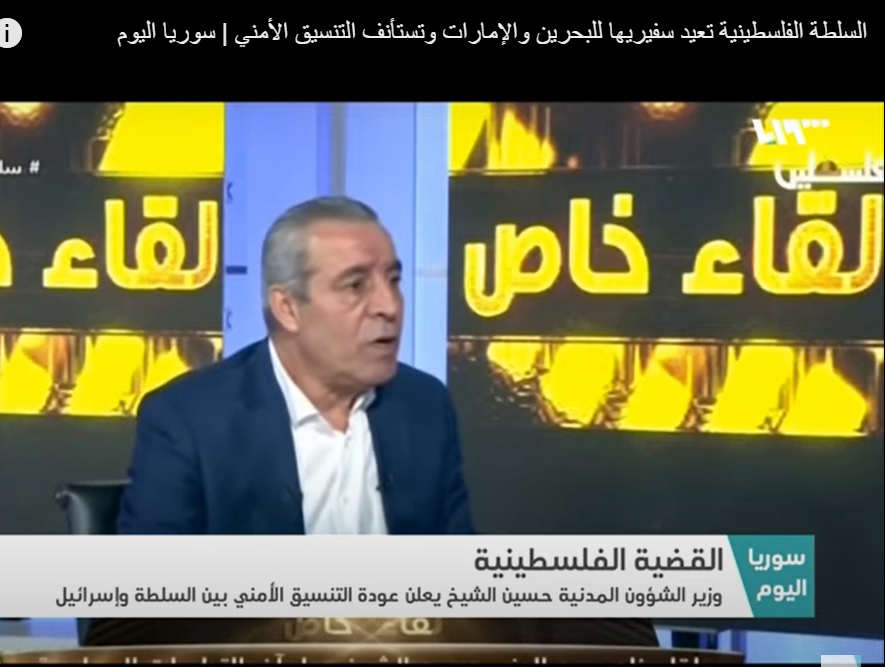Following a series of delays, the Fatah movement’s Revolutionary Council has set December 17, 2023, as the date for the movement’s 8th conference in Ramallah.
Comprising 1800 delegates, this conference holds the responsibility of electing the movement’s key institutions.
The decision comes amid a heated leadership transition phase, with Hussein al-Sheikh, the Secretary-General of the PLO Executive Committee, actively consolidating his standing within the movement. Concurrently, he seeks to secure regional backing to position himself as the primary contender to succeed PA Chairman Mahmoud Abbas after his exit from the political stage.
Al-Sheikh intends to assume Fatah’s leadership through the conference, planning to employ internal elections to remove some of his rivals from leadership positions within the movement. This strategic maneuver is aimed at paving the way for his leadership while securing the Fatah movement’s official stance in the Palestinian presidential elections.
Prominent Fatah figures facing off against Hussein al-Sheikh include Fatah Secretary-General Jabril Rajoub, Fatah Deputy Chairman Mahmoud Alaloul, Fatah Senior Tawfik Al-Tirawi, Palestinian Prime Minister Muhammad Ishtayeh, and more.
Majed Faraj, the head of Palestinian intelligence, has joined the group supporting Hussein al-Sheikh, receiving a commitment of election to Fatah’s central committee in return.
Insiders within the Fatah movement suggest that Hussein al-Sheikh’s primary objective is to secure his official appointment as Fatah’s deputy chairman, replacing Mahmoud al-Aloul, who was initially appointed to the role in 2017 by the Palestinian Authority’s chairman.
A-Sheikh has received tacit approval from the PA chairman to discreetly facilitate the removal of Mahmoud Al-Aloul through internal conference elections.
Furthermore, Al-Sheikh is actively working to minimize the representation of security prisoners in the 8th Fatah conference, thereby diminishing the influence of his political rival Marwan Albarghouti, who is serving five life sentences for the murder of Israelis.
In recent months, Hussein al-Sheikh has successfully persuaded Mahmoud Abbas to heed the demands of the Biden administration, initiating comprehensive reforms within PA institutions and the Fatah movement.
These reforms aim to infuse fresh perspectives into the movement, rejuvenating its image and bolstering the PA’s standing among Palestinians. This is especially crucial in regaining control over areas in northern Samaria.
Recently, Hussein al-Sheikh held discussions in Jordan with Barbara Leaf, the US Assistant Secretary of State, assuring her of Mahmoud Abbas’s commitment to implement necessary changes in PA institutions by year-end, a move that would also contribute to counterterrorism efforts.
Around a month ago, PA Chairman Mahmoud Abbas dismissed 12 governors in Judea, Samaria, and the Gaza Strip, undertaking a comprehensive overhaul of the PA’s diplomatic representatives abroad.
Hussein al-Sheikh is actively seeking support from top officials in Israel, the Biden administration, Jordan, Egypt, and Saudi Arabia to establish his candidacy as the rightful successor to Mahmoud Abbas.
Notably, Hussein al-Sheikh is considered to be Mahmoud Abbas’s closest and most loyal associate.
Senior Fatah officials affirm that he has pledged to safeguard Mahmoud Abbas and his family post-retirement.
Given that Mahmoud Abbas’s two sons have substantial economic interests, including holdings within PA territories, al-Sheikh has committed to preserving these assets.
While the Israeli security establishment is observing from a distance without direct involvement in the succession battle, Fatah claims that it is endorsing Hussein al-Sheikh’s strategic moves.




